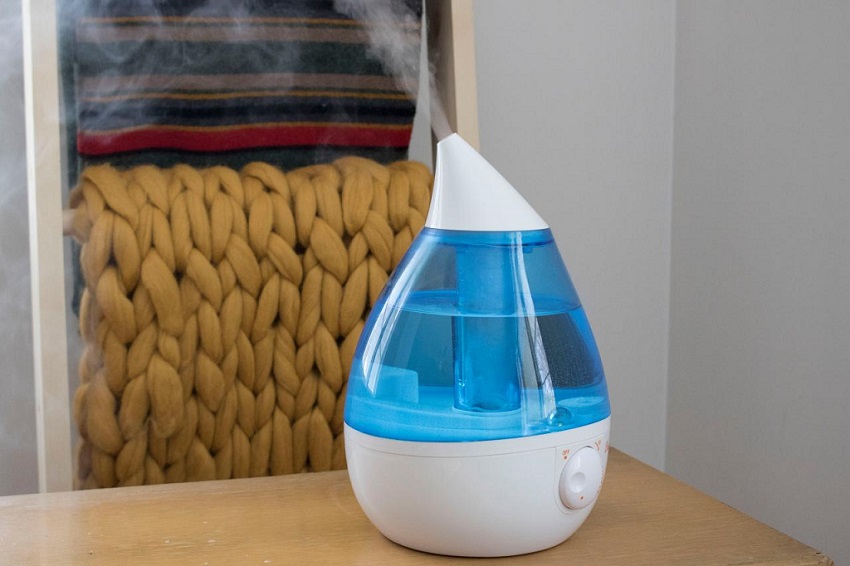
24 Jan How to clean humidifier filter?
A new study has found that most humidifiers don’t clean their filters regularly enough. Over time, mold and bacteria can build up in the filter and cause discomfort for those who breathe in the air. This makes keeping your humidifier clean important for both health and safety reasons.
Humidifiers are the lifeblood of a good environment. They keep our rooms at a comfortable temperature and help us breathe better. Unfortunately, they can also cause some problems. So, we’ve got to clean them regularly to keep them working well and keep your health in check.
How to clean a humidifier filter?
There are a few ways you can clean your humidifier’s filter. The most important thing is to do it regularly so that the filter stays clean and effective. You may like the dry eyes humidifier.
The first method is to simply replace the filter every month or two. This will help reduce the amount of mold and bacteria that can build up over time, which may cause discomfort.
If you don’t have access to a spare monthly filter, you can clean your filter with vinegar and water once a week. The mixture should have 10% peroxide in it, which can safely remove mold and bacteria from the filters. You’ll also need to replace this every few weeks if you want the humidifier back up at the full performance.
The problem is that some types of molds or bacteria do not respond well to caustic household cleaners, such as bleach or harsh acids like peroxide. Check the label before you use harsh chemicals to clean your humidifier!
All manufacturers recommend that their filters be replaced every month or two, but many people wait years between filter replacements as they don’t realize how much mold and bacteria buildup can occur in such a short period.
Don’t risk contaminating other areas! Be sure to keep your humidifiers far away from kitchen tops (or anyone else who may go near them) – putting this kind of bacteria or mold anywhere in your home is the worst idea!
Hygienically removing water droplets from warm mist humidifiers. They look unassuming enough to put on a desk so that others may see that it’s clean. They cause problems for air quality at work especially if you have children around with allergies. These tiny accessories can affect the respiratory tract when used continuously throughout the day, hence causing allergic reactions.
Clean these humidifiers with a mixture of 1 teaspoon bleach and 5 tablespoons of vinegar in 16 ounces water every 15 days or sooner if possible. To prevent other types of infections from being incubated by the condensation from an already moldy area, clean it out thoroughly in that washer with soap and warm water (2 gallons at a time should get most), then re-suspend enzyme pills into pooling liquids.
Never use hard chemical cleaners like “Kills 99% germs on contact” as they can damage and/or remove the sealer. If a humidifier is visibly dirty, it’s time to replace the heating filter usually found in the back of the unit or clean with vinegar solution if possible? Even though you might see that it looks clean, mold grows very quickly (low light + warm water = poor air circulation), so just standing there may not do the trick!
View Your Cool Mist Humidifiers: Does Not Mean Clean! to NOT remove any mist from the unit. Don’t be fooled. Most humidifiers have built-in filters that effectively circulate and moisturize your room with no external help by these “hacks.” These filtration systems need constant cleaning, then once everything is functioning for some time, clean it again (this applies basically to all non-manufactured units).
When to clean the humidifier filter?
Generally, humidifiers require special care when used in living quarters where kids sleep. However, because it’s easy for these types of units to accumulate impurity and dust, which are very unhealthy, it is recommended that the machine should be cleaned several times per year (usually done by the owner). Generally, since it takes a few minutes to do this job, even your time will not have much impact on maintenance.
The unit filter would run well instead of getting clogged with dust and impurity that should be cleaned a few times per month. Usually, the humidifier will last at least 2 years after two cleaning cycles (monthly + weekly), but of course depends on the operating him up to its lifetime.
Things to consider before cleaning humidifier filter
Check the manufacturer’s instructions to find out how often the filter should be cleaned.
Open the humidifier and locate and remove the filter. Be sure to dry it before putting it back in place. Put a little water into a bowl or container, add some white vinegar (or another cleaning agent), and stir until the solution is clear. With a clean brush, carefully and gently scrub the filter with the soapy water-vinegar mixture.
To remove that unwanted odor and leave your kid’s room fresh all day long, you can use evaporative coolers, which. They are many users of these units who recommend circulating warm moist air into the place, not only purifying but also uplifting up to 30 % humidity.
In the places where a humidifier is used, these cooler can be installed on or near it to get better results. Most people use cheap vaporizers at home because they are easy to install and maintain (consider).
They use evaporation literally, meaning that evaporative coolers evaporate water, thereby creating an air-driven cooling system that makes them useful for controlling the temperature of every object.
The idea is that moist air can evaporate moisture from the air using two methods that people use – saturated water and dry ice.
Conclusion:
This humidifier filter is very dirty. If you are looking for a good way to clean it, we recommend using a soft brush and warm water. Then use some mild detergent and then rinse the filter with hot water. Do not use any bleach as it can damage the plastic of the humidifier filter. It’s better to clean this filter with warm water and detergent than to throw it away because that will cause more harm to your health. To know more please visit probaby.

Sorry, the comment form is closed at this time.